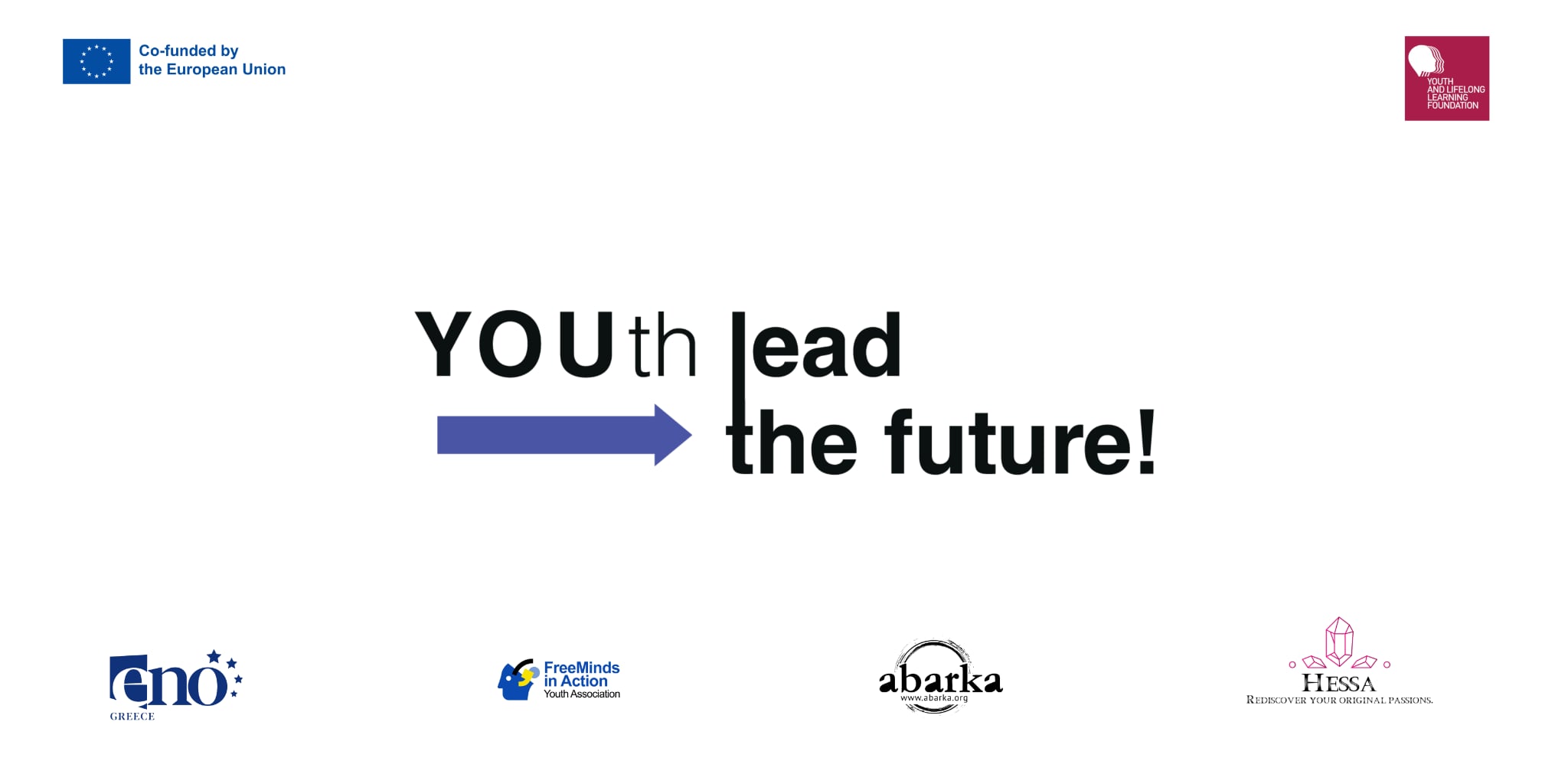
Addressing the Challenges in Youth Participation and Active Citizenship: Insights from the “YOUth Lead the Future!” Project
In the framework of the KA2 small-scale partnerships in youth project “YOUth lead the future!” (2023-3-EL02-KA210-YOU-000176965), a needs analysis was conducted to explore the challenges and gaps in youth participation and active citizenship across four European countries: Greece, Italy, Romania, and Spain. This survey, which gathered insights from 131 youth workers and educators, aimed to shed light on the specific barriers youth face in engaging with democratic processes and civic life, especially within marginalized or underrepresented communities.
Key Findings: Barriers to Youth Participation
Through this survey, we identified several key barriers that hinder youth participation in these four countries:
- Lack of Awareness
One of the most significant barriers identified was the lack of awareness about available opportunities for civic engagement. Youth in countries like Greece, Romania, and Spain often do not know what opportunities exist, making engagement less likely. Many respondents highlighted that outreach efforts were insufficient, and young people were not adequately informed about the programs available to them.
- Economic Barriers
Financial constraints were another major issue. Many young people in Greece and Romania face economic challenges that prevent them from participating in civic activities. The cost of transportation, participation fees, and family responsibilities often limit access to these opportunities, particularly for youth from marginalized backgrounds.
- Social and Cultural Barriers
In addition to economic factors, social and cultural barriers also play a significant role. Social anxiety, traditional family expectations, and gender norms were identified as factors that prevent young people, especially in Spain and Romania, from engaging in civic and political activities. Some respondents in Spain noted that youth are often “comfortable with what they have” and reluctant to step outside their established routines.
- Lack of Institutional Cooperation
Despite broad efforts to reach out to youth organizations and institutions, there was a lack of cooperation from these organizations, which limited the effectiveness of youth programs. The survey revealed that youth workers and educators often work in isolation, without sufficient support from other institutions that could help them mobilize young people, particularly those from marginalized backgrounds.
Factors Affecting Access to Youth Programs
Access to youth programs was also a critical issue highlighted in the survey. Geographical and logistical barriers were a common challenge, particularly in rural areas where young people face difficulties due to poor transportation infrastructure or lack of access to technology. Additionally, restrictive government policies, such as age requirements or a lack of youth-focused policies, were cited as limiting the ability of youth to participate in available programs.
Socioeconomic Influences on Participation
The survey also revealed that socioeconomic factors play a critical role in whether young people can engage in civic activities. In Greece, Spain, and Romania, many youth struggle with balancing family obligations and economic pressures, which make it difficult to commit to extracurricular activities or civic engagement. Traditional career expectations and gender norms further complicate the participation of young women, in particular, in youth-led programs.
Recommendations for Enhancing Youth Participation
Based on the findings from the survey, several recommendations were made to address the barriers and improve youth participation:
- Increase Financial Support
A key recommendation was to provide more financial resources for youth programs, ensuring that transportation, accommodation, and other related costs are covered, especially for marginalized youth.
- Incentivize Participation
Programs should be rewarding and enjoyable to attract more young people. This could include providing career development opportunities, social rewards, and personal growth incentives to make participation more appealing.
- Create Dedicated Spaces for Youth
Establishing dedicated spaces where young people can engage in activities outside of formal education or family obligations was another key recommendation. These spaces should foster creativity, learning, and community-building.
- Improve Information Flow
Effective communication is essential for increasing awareness of available opportunities. More targeted outreach efforts, especially in rural and marginalized communities, should be made to ensure youth are informed about the benefits of participation.
- Professional Development for Youth Workers
Providing training and mentorship for youth workers is crucial to ensure they are equipped to support marginalized youth and help them overcome the barriers they face.
Next Steps: Moving Forward Together
The findings from this needs analysis provide a clear roadmap for addressing the challenges faced by youth in Greece, Italy, Romania, and Spain. By targeting specific barriers such as financial limitations, lack of awareness, and social/cultural norms, and by strengthening institutional collaboration, we can foster greater youth participation and active citizenship across Europe.
The “YOUth lead the future!” project has laid the foundation for future work in this area, and the recommendations will guide the development of a learning guide aimed at improving youth engagement across Europe. With the active support of youth workers, educators, and institutions, we can help young people from all backgrounds become more actively involved in civic life and contribute to building a more inclusive and empowered future.
